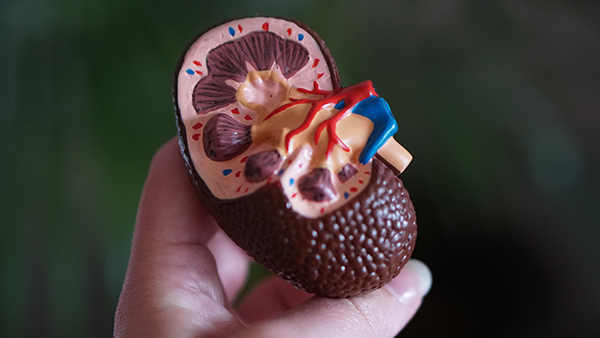Weight Loss Surgery and Kidney Health
Weight Loss Surgery and Kidney Health

Many people know that obesity can cause a whole host of issues with your body. It can shorten your lifespan, make your life generally uncomfortable, and can drastically increase your risk of a stroke or heart attack. However, not many people think about the connection between obesity, and how organs other than the stomach can handle it. While we have mentioned liver issues in connection with obesity, there are other organs that can come under fire. Including organs that are responsible for removing toxins from the body. So, let’s look at how obesity and weight loss can affect the kidneys.
What Do Kidneys Do?
Kidneys are two bean-shaped organs that are part of the renal system. They convert the body’s waste into urine, and can also serve as part of the blood filtration system. Typically, a healthy kidney filters about half a cup of blood per minute and expels the excess water from the filtration process as urine. The urine flows through two thin tubes of muscle called ureters, one for each side of the bladder.
Inside the kidneys, there are a million cells called nephrons with two main parts that serve as a filtration system. The two microorganisms that are inside each nephron that directly responsible for filtration are the glomerulus and the tubule. The glomerulus filters the blood, and the tubule returns needed substances in the blood and pulls out additional wastes.
It is also important to note that it also removes excess acid that is produced by the cells in your body. If you’re going into renal failure, then that means your kidney is not working and waste isn’t going to filter properly.
But what happens to your kidneys when obesity is thrown into the mix? How does it make it harder for your kidneys to function? And, can weight loss surgery help?
How Obesity can Hurt your Kidneys
Obesity can harm your kidneys by means of increasing high blood pressure. According to the American Heart Association, “When the blood vessels become damaged, the nephrons that filter your blood don‚Äôt receive the oxygen and nutrients they need to function well. This is whyhigh blood pressure (HBP or hypertension) is the second leading cause of kidney failure. Over time, uncontrolled high blood pressure can cause arteries around the kidneys to narrow, weaken or harden. These damaged arteries are not able to deliver enough blood to the kidney tissue.”
In other words, there is just not enough room for the blood to flow, when your arteries are too narrow. This leads to a decrease of blood filtration, and a high concentration of impurities to infect the bloodstream. At the most extreme circumstances, the kidneys will fail, leaving your body to not be able to filter out any impurities whatsoever.
And the scariest part of this is that it is happening to people who are suffering from obesity, more and more.
According to the latest study on the matter, “The incidence of obesity-related glomerulopathy has increased 10-fold in recent years. Obesity shows to be a risk factor for nephrolithiasis, and for a number of malignancies including kidney cancer. ”
So, if this is a problem, how can weight loss surgery fix it?

Weight Loss Surgery can Help Kidney Issues
In a recent study involving teenagers who have undergone weight loss surgery, “We were surprised by the magnitude of difference in diabetic kidney disease risk observed for youth undergoing bariatric surgery compared with standard medical therapy,” Bjornstad said in an interview. “Adolescents in the bariatric surgery group had 27-fold lower odds of elevated albumin excretion at 5-year follow-up vs. youth receiving standard medical therapy.”
While this only explains the correlation, not the causation, I do have a few hypotheses that might explain the change.
Most bariatric programs, especially when children are going through treatment, require regular counseling visits. They also have a nutritionist on staff to discuss meal plans and provide nutritional education. Usually, after weight loss surgery, there is enough emphasis on both counseling and nutrition to reduce factors that contribute to the cause of high blood pressure in the first place. The medical community knows that stress and bad nutrition are the largest contributions to high blood pressure.
Because there is enough focus on those two things, there is a chance that post weight loss surgery treatments are doing the trick. Both the cause and the solution to kidney problems are more of a byproduct of what is going on.
However, that does not downplay the importance of taking care of yourself, after effect or not.